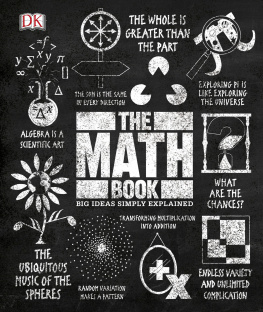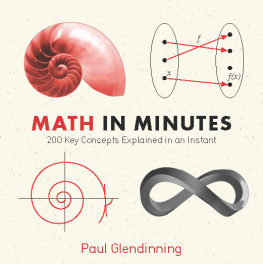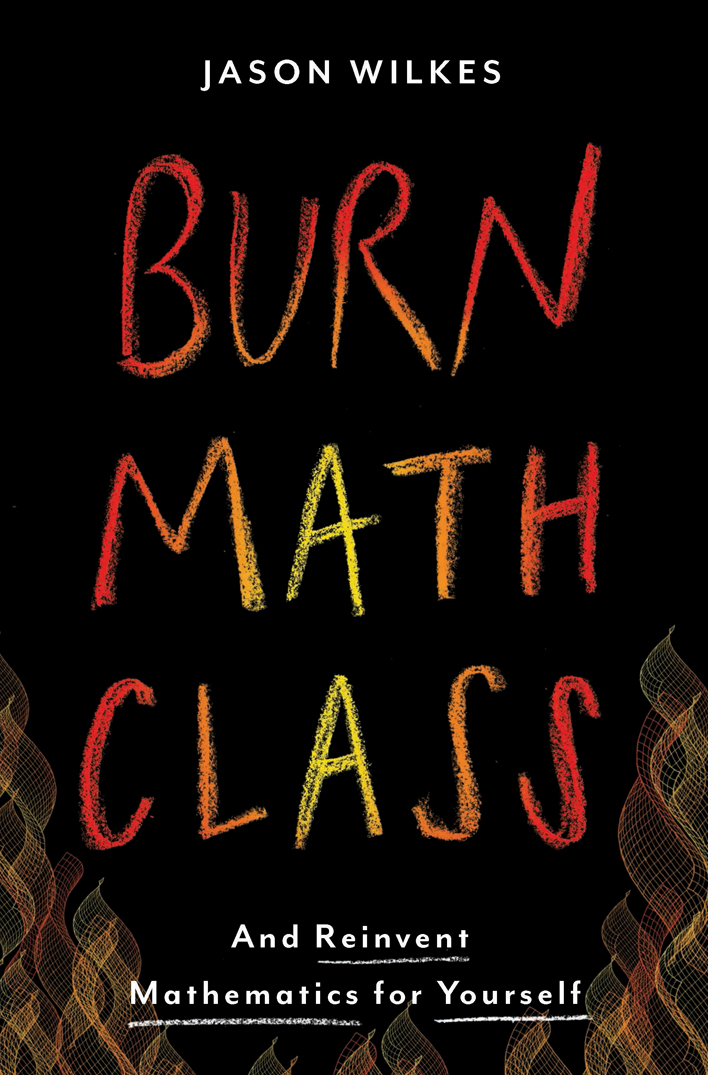
Copyright 2016 by Jason Wilkes
Published by Basic Books,
A Member of the Perseus Books Group
All rights reserved. Printed in the United States of America. No part of this book may be reproduced in any manner whatsoever without written permission except in the case of brief quotations embodied in critical articles and reviews. For information, contact Basic Books, 250 West 57th Street, New York, NY 10107.
Books published by Basic Books are available at special discounts for bulk purchases in the United States by corporations, institutions, and other organizations. For more information, please contact the Special Markets Department at the Perseus Books Group, 2300 Chestnut Street, Suite 200, Philadelphia, PA 19103, or call (800) 810-4145, ext. 5000, or e-mail .
Library of Congress Control Number: 2015956108
ISBN: 978-0-465-07381-8 (e-book)
10 9 8 7 6 5 4 3 2 1
Table of Contents
Guide
Contents
Dedication
This is harder than I expected. Lets see...
Let J always being himself.
Let W the same reason.
Let R all the help. Hopefully that will make sense eventually.
Okay...

 (To E. T. Jaynes, for J)
(To E. T. Jaynes, for J)

 (To David Foster Wallace, for W)
(To David Foster Wallace, for W)
(1 )(To Reader, for R)
where [0, 1] is determined by the final dedicatee.
I promise the book isnt this confusing.
... (

. I promise the book isnt this confusing.
Good fictions job [is] to comfort the disturbed and disturb the comfortable.
David Foster Wallace, interview with Larry McCaffery
Fiction and nonfiction are not so easily divided.
Yann Martel, Beatrice and Virgil
Burn Math Class
Okay, dont really burn math class. Or anything. Arson is mean, and extremely illegal. I... No, nevermind. I dont want to start the book like that.
(Author thinks for a moment.)
Alright, I think Ive got it. Sorry about that.
(Ahem.)
We should all be very angry. Something beautiful has been stolen from us, but weve never felt its absence because the theft happened long before we were born. Imagine that by some massive historical accident, we had all been convinced that music was a dull, tedious, rigid enterprise to be avoided except when absolutely necessary. Suppose that we had all attended music classes for more than a decade during our youth, and that through some feat of brilliant sadism among the instructors, we all left these classes with a firm belief that music is at most a means to an end. We might agree that everyone should have a basic level of familiarity with the subject, but only for reasons of practicality: you need music because it might rarely help you with other things. But the consensus view would hold that music more closely resembles plumbing than an art form.
The world would still be full of artists, of course. Just as its full of them now. By artists, I dont necessarily mean art-school students, or professional artists, or the guy who wrote some stuff on a toilet and put it in a museum. I mean the people who pull things into existence out of nothingness; who refuse not to be themselves; who have their own way of fracturing reality thats so authentic you can feel it in your nerve endings; who enter the world on fire and too often die young. Music is not for them, wed agree. Music is for the accountants among us, and its best if we leave it to them. As farfetched as such a situation might seem, this is exactly what has happened to mathematics. Mathematics has been stolen from us, and it is time we take it back.
With this book, I am advocating a process of conceptual arson. The state of mathematics education all over the world has degenerated to a point where it no longer makes sense to do anything but burn it all down and start over. We begin by doing just that. In this book, mathematics is not approached as a preexisting subject that was created without you and must now be explained to you. Beginning on the first page, mathematics does not exist. We invent the subject for ourselves, from the ground up, free from the historical baggage of arcane notation and pretentious terminology that haunts every mathematics textbook. The orthodox terminology is mentioned throughout, and used when it makes sense to do so, but the mathematical universe we create is entirely our own, and existing conventions are not allowed in unless we explicitly choose to invite them.
The result is an approach that requires zero memorization, encourages experimentation and failure, never asks the reader to accept anything we have not created ourselves, avoids fancy names that hide the simplicity of the ideas, and presents mathematics like the adventure it is, in a conversational form that could easily be read as if it were a novel. While the primary goal of our journey is hedonism rather than practicality, we are lucky to find no conflict between the two. You will actually learn the subject a lot of it and learn it well.
When one attempts to construct a narrative through mathematics that does not ask the reader to accept facts established elsewhere, it is impossible not to notice what I think is the fundamental tragedy of existing mathematical pedagogy a tragedy that is never mentioned, even in the harshest criticisms of orthodox educational practice:
We have been teaching the subject backwards.
Let me explain what I mean with a story. I got a C in basic algebra. All I learned was to hate the word polynomial. I got a C in trigonometry. All I learned was to hate the words sine, cosine, and hypotenuse. Mathematics had never been anything but memorization, boredom, and arbitrary authority these are a few of my least favorite things. By my senior year of high school, I had completed all of the required mathematics courses, and I cant describe how happy I was that I could now die without ever setting foot in a mathematics classroom again. Free at last.
One night during my senior year, I was hanging around in a bookstore, as I often did, and I saw a book on calculus. I had always heard that calculus was pretty difficult, but I had never taken a course in it, and I would never have to... a relaxing thought. This lack of any obligation to learn the subject somehow made the book seem more appealing, so I thought I would flip through it for a few seconds. I expected to see some scary symbols, think Yep, that sure looks difficult, and then put the book down and be done with it forever. But when I opened the book, it wasnt just the usual garbage. In completely honest and unpretentious language, the author was saying something like this: Straight things are easier to deal with than curvy things, but if you zoom in far enough, then each tiny piece of a curvy thing almost looks like a straight thing. So whenever you have a curvy problem, just imagine zooming in until things look straight, solve the problem down there at the microscopic level where its easy, and then zoom out. Youve solved the problem. Youre done.








